About the author : admin
As a business owner or manager, you’re constantly balancing numerous responsibilities—from ensuring the quality of your products and services to maintaining strong customer relationships and growing your company. With all these demands, it’s no surprise that administrative tasks like HR and payroll can quickly become overwhelming. While these are crucial functions for any business, managing them in-house can be time-consuming and complex, especially for small to medium-sized enterprises (SMEs). That’s where outsource hr and payroll comes in.
Outsourcing these functions to third-party experts can provide significant advantages that can streamline operations, improve accuracy, and even reduce costs. But what exactly are the benefits of outsource hr and payroll? Let’s dive into the key reasons why many businesses are choosing to outsource these services.
1. Cost Savings and Increased Efficiency
One of the primary reasons businesses choose to outsource HR and payroll is to save money. Maintaining an in-house HR department or payroll system involves several hidden costs, including salaries for HR staff, payroll software, training, and administrative resources. For small businesses especially, these costs can become burdensome, often draining valuable financial resources that could be better spent on growth initiatives or improving core operations.
Outsourcing HR and payroll allows businesses to shift these responsibilities to experts who already have the necessary infrastructure in place, resulting in a more cost-effective solution. Instead of hiring additional employees or investing in expensive software, you can pay a flat fee to an outsourcing provider who can handle everything from tax filings to employee benefits management. This can result in both immediate and long-term savings, making it an attractive option for businesses of all sizes.
2. Access to Expertise and Compliance Support
HR and payroll are not just administrative functions—they also require a thorough understanding of complex legal and tax regulations. For instance, payroll must comply with tax laws, benefits requirements, and labor regulations that vary by state and country. Keeping up with ever-changing laws can be difficult for small businesses, especially if you don’t have dedicated HR professionals on staff.
By outsourcing HR and payroll, you gain access to specialized expertise that ensures your business remains compliant with the latest legal and tax requirements. Outsourcing firms employ professionals who are well-versed in the intricacies of tax laws, wage and hour regulations, benefits administration, and more. This reduces the risk of costly fines, penalties, or lawsuits due to non-compliance.
Additionally, outsourcing providers often offer ongoing support to help navigate new or evolving regulations, providing you with peace of mind that your business is always following the law.
3. Improved Accuracy and Reduced Errors
Payroll errors can be costly and disruptive to your business. A missed paycheck, incorrect tax withholding, or miscalculated overtime can lead to employee dissatisfaction, and in some cases, legal consequences. Managing payroll in-house means taking on the responsibility of ensuring accuracy every pay cycle, which can be tricky when dealing with complex calculations and changing tax rates.
Outsourcing payroll to a professional service provider helps mitigate these risks by leveraging their knowledge, tools, and systems designed for precise payroll processing. These experts handle everything from calculating employee wages and overtime to ensuring correct tax withholdings, reducing the chances of errors. In turn, this helps maintain employee trust and satisfaction, as well as avoiding penalties for incorrect filings.
4. Time Savings and Focus on Core Business Activities
Managing HR and payroll can take up a significant amount of time each pay period. Tasks such as collecting timecards, calculating wages, issuing paychecks, handling employee benefits, and filing taxes all require careful attention to detail and significant time investments.
By outsource hr and payroll, you free up valuable time that could be spent focusing on what truly matters—growing your business. With less time spent on administrative tasks, business owners and managers can redirect their efforts towards strategic initiatives such as product development, customer acquisition, or expanding their market presence.
Outsourcing providers also take care of employee questions about benefits, payroll discrepancies, and other HR-related concerns, which reduces the administrative burden on your internal team. This can improve overall productivity and efficiency for both you and your employees.
5. Scalability and Flexibility
As your business grows, so do your HR and payroll needs. What works for a small team may not be sufficient when you hire more employees or expand to new locations. Managing payroll manually or with a small HR team can become increasingly challenging as the number of employees increases, particularly when you’re dealing with different tax jurisdictions, benefits options, and compliance requirements.
Outsource hr and payroll offers the scalability and flexibility that growing businesses need. Service providers can easily accommodate changes in your workforce, whether you’re adding new employees, adjusting pay structures, or expanding into new markets. They can also offer customized solutions tailored to your specific needs, making it easy to adapt as your business grows and changes.
6. Better Employee Experience
Your employees are your most valuable asset, and ensuring their satisfaction is critical to maintaining a productive and engaged workforce. Payroll errors, delayed payments, or poor benefits administration can negatively impact employee morale and lead to dissatisfaction. By outsourcing payroll, you ensure your employees are paid accurately and on time, which fosters trust and loyalty.
Many outsourcing firms offer additional employee services, such as self-service portals, where employees can access their pay stubs, tax forms, and benefits information. This not only empowers employees to manage their information but also reduces administrative tasks for your HR team, allowing them to focus on more strategic initiatives like recruitment, development, and retention.
7. Security and Data Protection
Payroll and HR data are sensitive, and handling them in-house requires a high level of security to protect against data breaches, fraud, and identity theft. Storing payroll data on local servers or paper files can expose your business to significant risks, particularly in the event of a cyberattack or internal data breach.
Outsourcing payroll services provides a higher level of data protection. Professional providers have advanced security measures in place to protect sensitive employee information, including encrypted systems, secure data storage, and regular audits. This reduces the risk of data theft or loss, offering peace of mind to both employers and employees.
Conclusion
Outsource hr and payroll functions is a smart business decision for many companies. It allows businesses to save time, reduce costs, and ensure accuracy while providing access to expert knowledge and reducing the risk of non-compliance. Whether you’re looking to improve efficiency, reduce errors, or focus on your core business activities, outsourcing HR and payroll can provide the support you need to succeed.
By leveraging the services of experienced professionals, you can optimize your operations, provide a better employee experience, and ultimately create a more profitable and compliant business. Outsourcing these functions is not just about saving money—it’s about investing in your business’s long-term growth and success.


